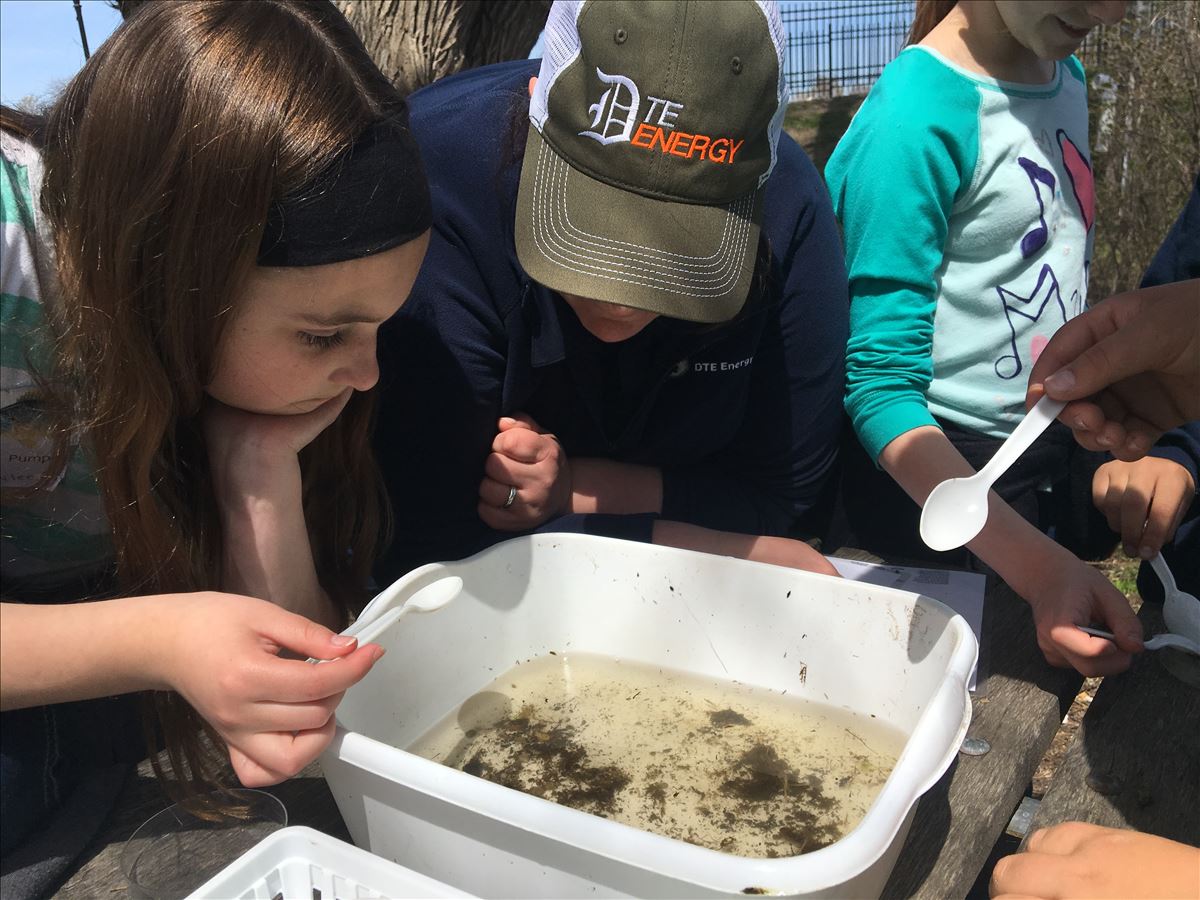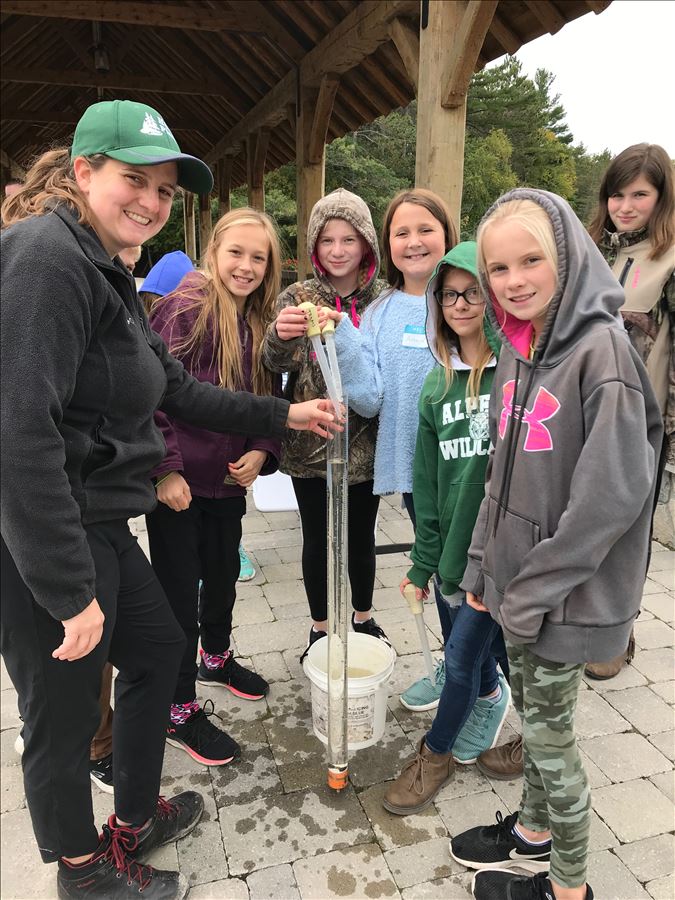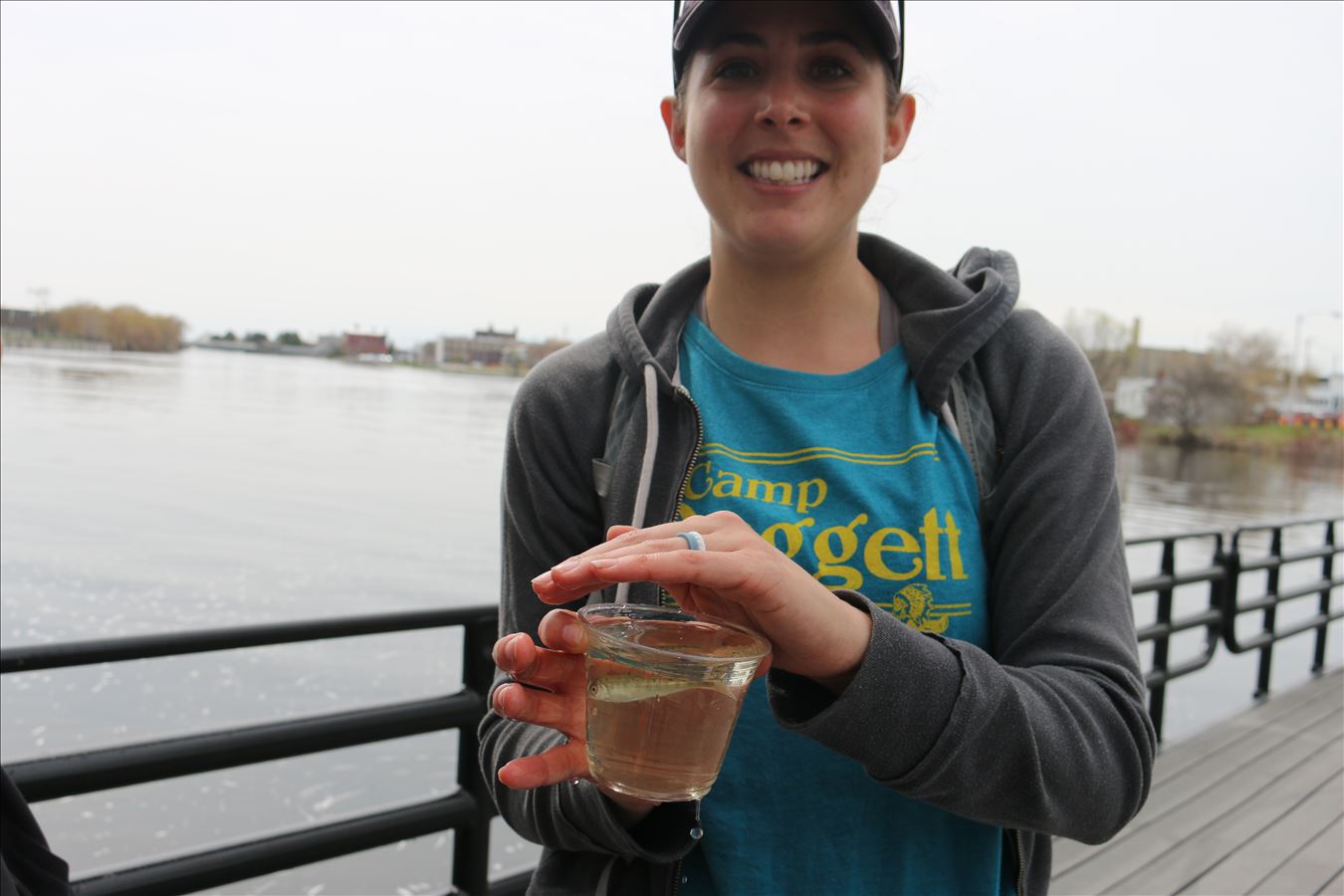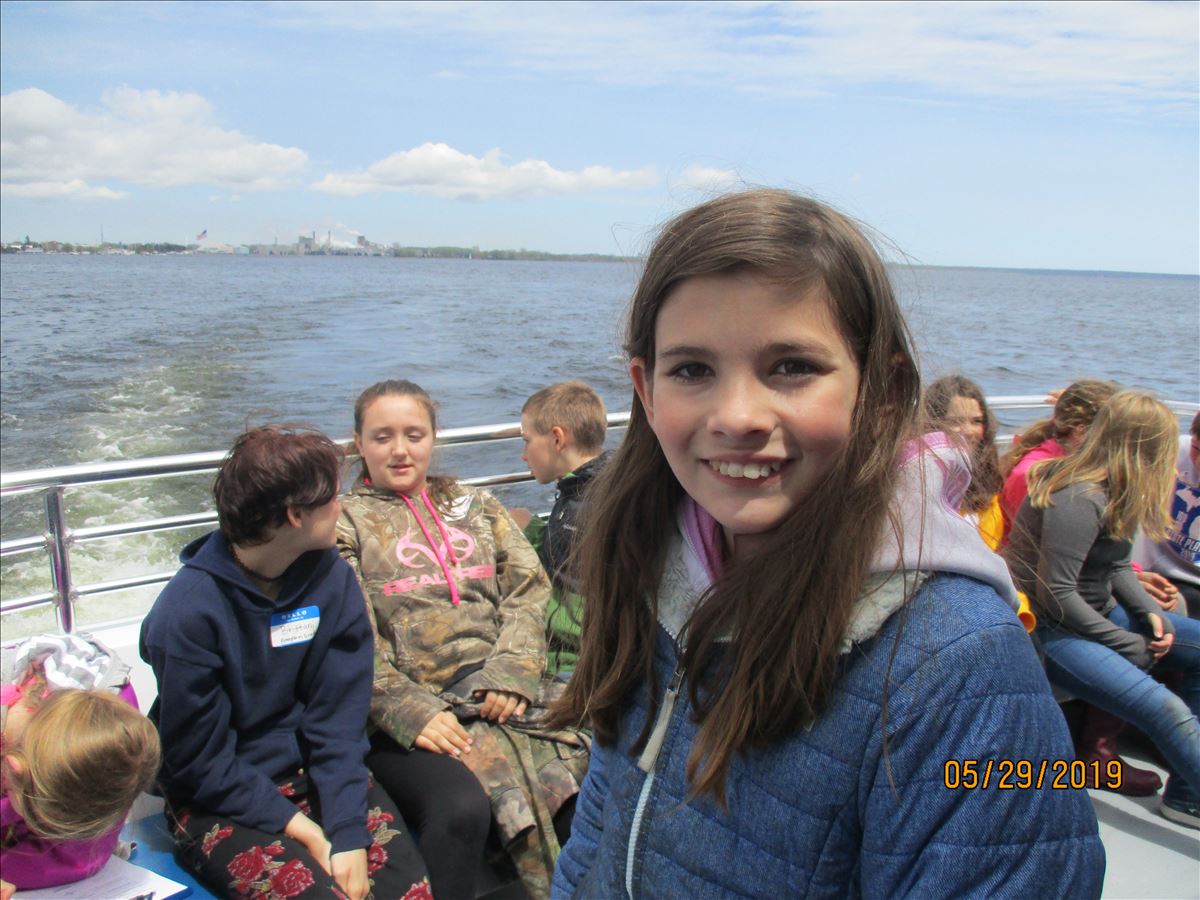Community Connections
Besser Elementary students raised and released salmon into the Thunder Bay River. Their project represents the broad goal of the Northeast Michigan Great Lakes Stewardship Initiative: to foster community engagement through place-based stewardship education (PBSE). Students were given an opportunity to participate in STEM activities along the shores of Thunder Bay River, which flows through Alpena, MI. Our Fisheries, Our Future has a collective community goal to improve and maintain the well-being of the watersheds around Northeast Michigan. These watersheds provide educational, recreational, and economic benefits to the surrounding communities. These strengthened community ties give students a network of support that will help them grow personally as young professionals, and future community leaders. Experiencing different community concerns, Mrs. Hartmeyer and her students are better able to understand ways to increase the ecological and economic value of Northeast Michigan.
Power in Partnership
Many partners come together as part of the NEMIGLSI network to support this place-based stewardship education project. Teachers and students alike worked along side environmental STEM professionals from the Michigan Department of Natural Resources, U.S. Fish and Wildlife Services, Michigan State University Extension, 4-H volunteers, Huron Pines AmeriCorps members, and Hammond Bay Biological Station Sea Lamprey research. The Besser Museum served as an educational destination to help students better understand the connection between watershed and wildlife studies. Huron Pines AmeriCorps members assisted with various field activities while the Great Lakes Fishery Commission brought Sea Lamprey to the students to discuss invasive species. The salmon in the classroom project was not the only benefit of being a Our Fisheries, Our Future teacher or student. This project also provided participating teachers with professional development pertaining to fisheries science and watershed ecosystems. Teachers explored new materials and curriculum, and were also able to connect with like-minded educators. Teachers professional learning opportunities enhances educator knowledge which provides an improved experience for students.
Meaningful Watershed Education Experiences
Mrs. Hartmeyer’s fifth grade classes from Besser Elementary School visited Rotary Island Mill Park to support their community and learn from their environment. Through Our Fisheries Our Future, Ms. Hartmeyer's class participated in the Michigan Department of Natural Resources Salmon in the Classroom program. Their day on Rotary Island was the culmination of months of classroom learning and the release of their salmon. Students engaged in a variety of environmental activities including nature journaling with Huron Pines AmeriCorps, wetlands investigation and salmon data collection with U.S. Fish and Wildlife Services, and invasive species exploration with Great Lakes Fishery Commission Sea Lamprey experts. Students measured and weighed each salmon before the release and used that information to calculate and analyze the overall health of their fish. They also conducted an assessment of fish habitat and water quality of the river. They assessed both the biotic and abiotic qualities of the river through chemical tests and sampling aquatic macroinvertebrate. Students were able to gain real world science experiences by working directly with STEM field professionals.
74 Students are involved in this project.
2 Teachers are involved in this project.
Alpena, MI 49707



